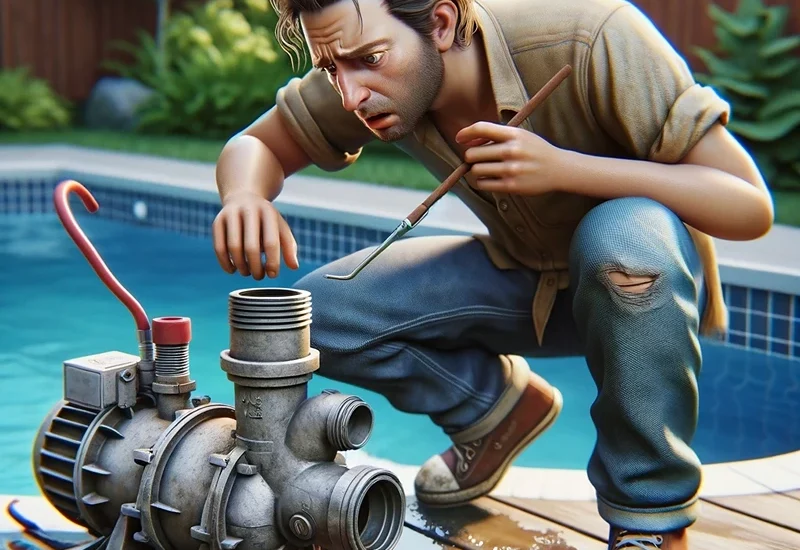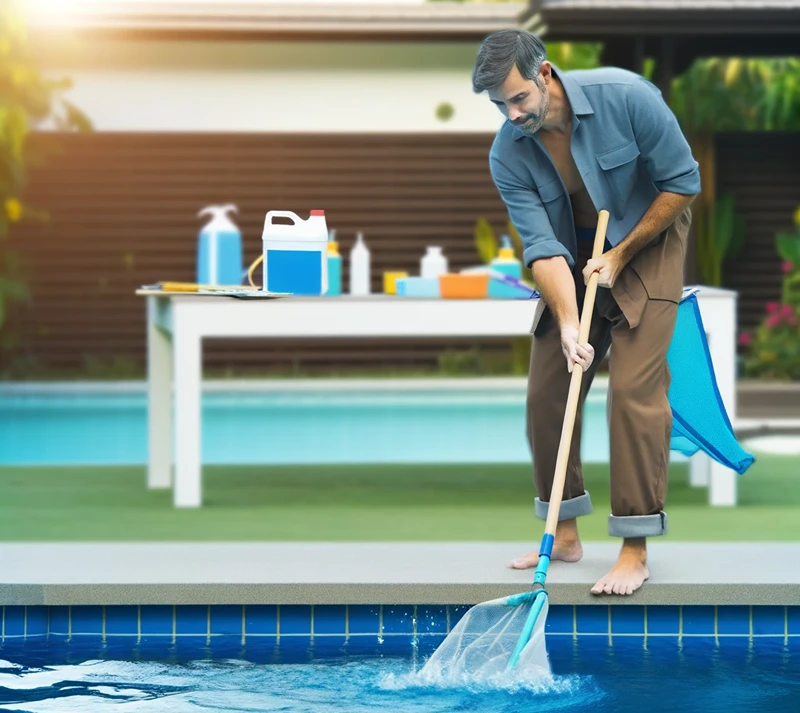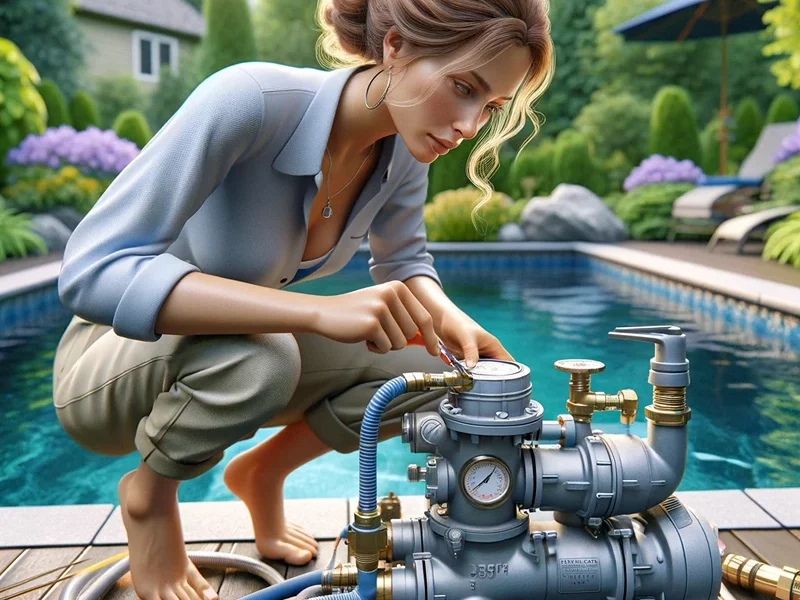Help! My Pool Pump is Sucking in Air
Experiencing a swimming pool pump that’s sucking in air can be a frustrating ordeal for any pool owner.
Understanding the mechanics of your pool pump and identifying potential causes for this issue are important steps toward finding a solution.
In this article, we’ll explore how a pool pump works, why it might be sucking in air, and how Living Water Pool Company can assist in resolving these issues.
Did you know that a well-maintained pool pump not only ensures a clean pool but can also significantly reduce energy costs? Properly functioning pool pumps can save up to 25% in energy expenses.

How Does a Pool Pump Work?
A pool pump is responsible for maintaining the health and clarity of pool water. It functions as the heart of the pool’s circulation system, working to move water through the filtration system.
Essentially, the pump creates a vacuum effect that propels water from the pool, through the filter, and back into the pool after it’s cleaned. This process helps distribute chemicals evenly, remove debris, and ensure the water stays sanitized and safe for swimming.
Do Pool Pumps Require Regular Maintenance
Regular maintenance of pool pumps is critical to keep your pool water clean and the system running efficiently. This involves checking for air leaks, which can cause the pump to lose prime, leading to issues like suction problems and overheating.
Common areas to inspect include the lid of the pump, gaskets, suction lines, and drain plugs. If you notice air bubbles in the pump or see bubbles blowing out of the return jets, it may indicate an air leak somewhere in the system.
Using sealants or pool putty can fix minor leaks. It’s also important to maintain the pool water level at least halfway up the skimmer to prevent negative pressure and air pockets.
You should schedule regular maintenance for your pool pump for optimal performance and longevity. Typically, it’s recommended to have professional maintenance at least once a year.
However, the frequency can vary based on usage and environmental factors. Regular check-ups help in early detection of issues like air leaks or mechanical wear, ensuring your pool system remains in top condition. For detailed maintenance schedules and services, you can visit Living Water Pool Company’s website.

Why Your Pool is Sucking in Air
There are several reasons why your pool pump might be sucking in air, which can lead to inefficient operation and potential damage:
Underground Air Leak
An underground air leak is a subtle yet significant problem that can affect your pool’s pump system. It occurs when air infiltrates the pool’s plumbing, often through small cracks or loose joints in the pipes located beneath the pool deck or underground. These leaks are challenging to detect because they’re not easily visible. Symptoms include inconsistent water flow and air bubbles in the return water. Diagnosing and repairing underground air leaks typically requires professional expertise, as it involves checking the entire plumbing system and possibly excavating to access and fix the damaged pipes.
Pump Lid and Pump Lid O Ring
The pump lid and its O-ring maintain an airtight seal in your pool’s pump system. Over time, these parts can wear out or get damaged, leading to air leaks. A cracked pump lid or a deteriorated O-ring will allow air to enter the pump, disrupting its efficiency. Replacing a damaged pump lid or a worn-out O-ring is a relatively simple yet effective solution to prevent air from being sucked into the pump.
Stuck Skimmer Weir
A stuck skimmer weir can lead to air being sucked into your pool pump. The skimmer weir, which is the flap at the mouth of the skimmer, helps in trapping debris. If it gets jammed in the closed position, it restricts water flow to the pump, creating conditions that draw air into the system. Regularly checking and ensuring that the skimmer weir moves freely is important to prevent this issue.
Low Water Level
A low water level in your pool can be a significant factor in causing your pool pump to suck in air. When the water level falls below the skimmer line, the pump may start to draw air instead of water, leading to air lock or loss of prime. This can reduce the pump’s efficiency and potentially cause damage over time.
Intake Manifold and Valves
Problems with the intake manifold and valves are another common reason for air entering your pool pump. These components are responsible for regulating the flow of water into the pump. If they are not functioning correctly, such as being partially closed or damaged, they can allow air to enter the system along with water.
How to Fix the Air in Your Pool Pump
To address air in your pool pump, it’s all about following a few simple steps. This approach is straightforward and will help you solve most issues effectively.
- Check and Repair Leaks: Inspect for leaks in the pump lid, O-ring, valves, and plumbing. Replace or repair any faulty parts.
- Ensure Proper Water Level: Keep the water level above the skimmer line to prevent air from being drawn into the system.
- Unclog and Free Skimmer Weir: Ensure that the skimmer weir is not stuck and is functioning properly.
- Inspect and Adjust Intake Manifold and Valves: Make sure these parts are in good condition and properly set.
- Seek Professional Help: For complex issues, especially underground leaks, it’s advisable to consult a professional.

How Living Water Pool Company Can Help
Living Water Pool Company offers specialized services in pool pump repair and installation. They are equipped to handle a variety of pool pump issues, including water and air leaks, prime loss, impeller blockage, motor failures, and damaged pump baskets. Their team provides professional diagnostics and repair services, ensuring that your pool pump operates efficiently. Whether it’s a simple repair or a complete pump replacement, Living Water Pool Company has the expertise to address all your pool pump needs.
Living Water Pool Company also offers a complimentary quote for their pool pump repair and installation services.
To get in touch with us, you can call us at 623-889-1366.
